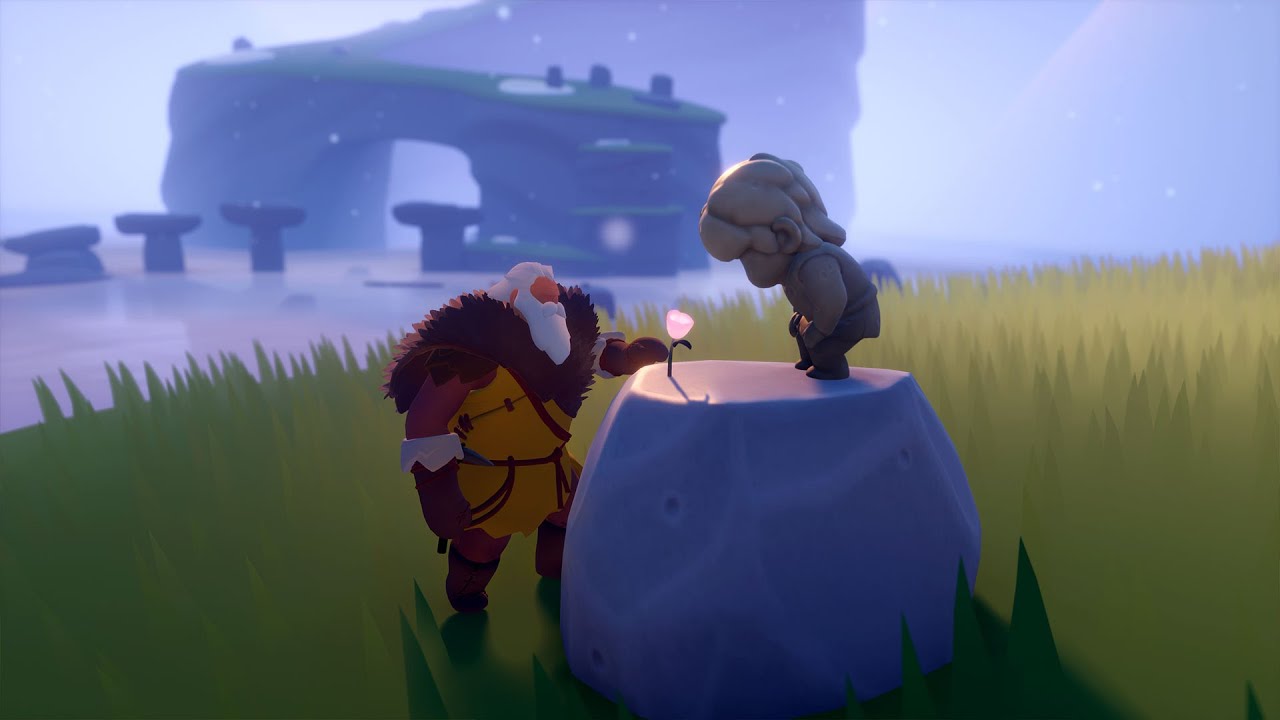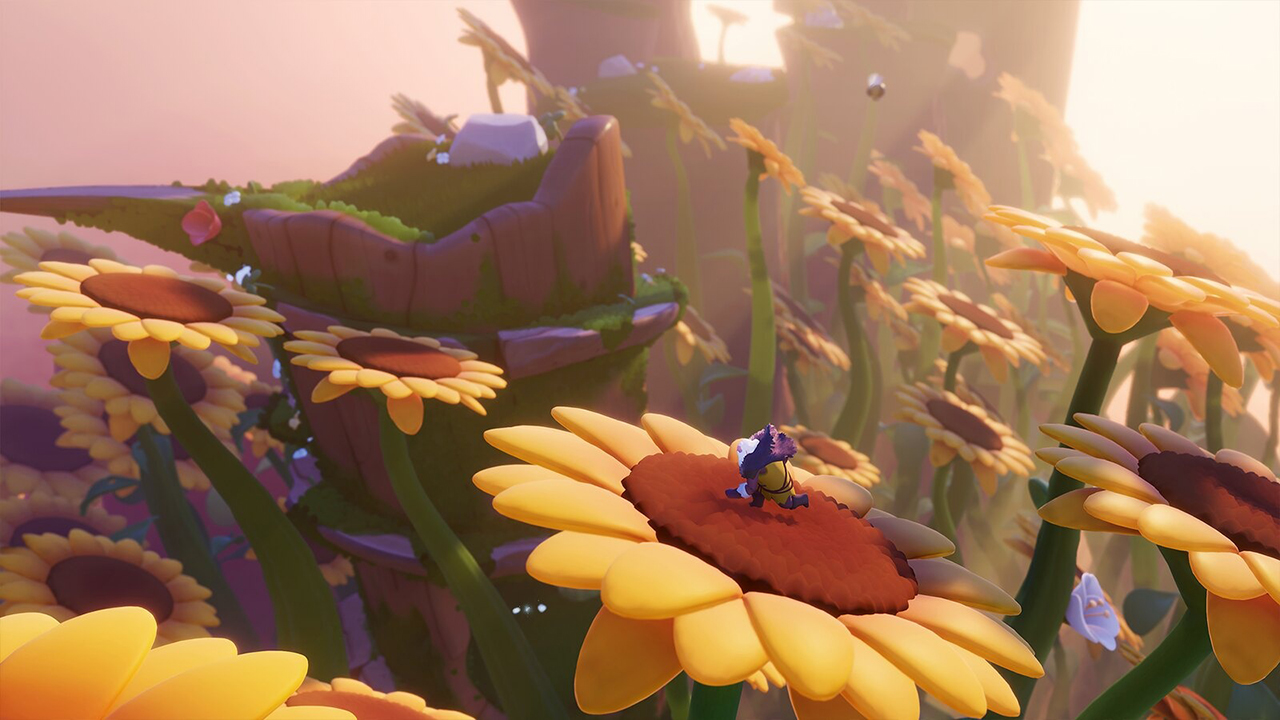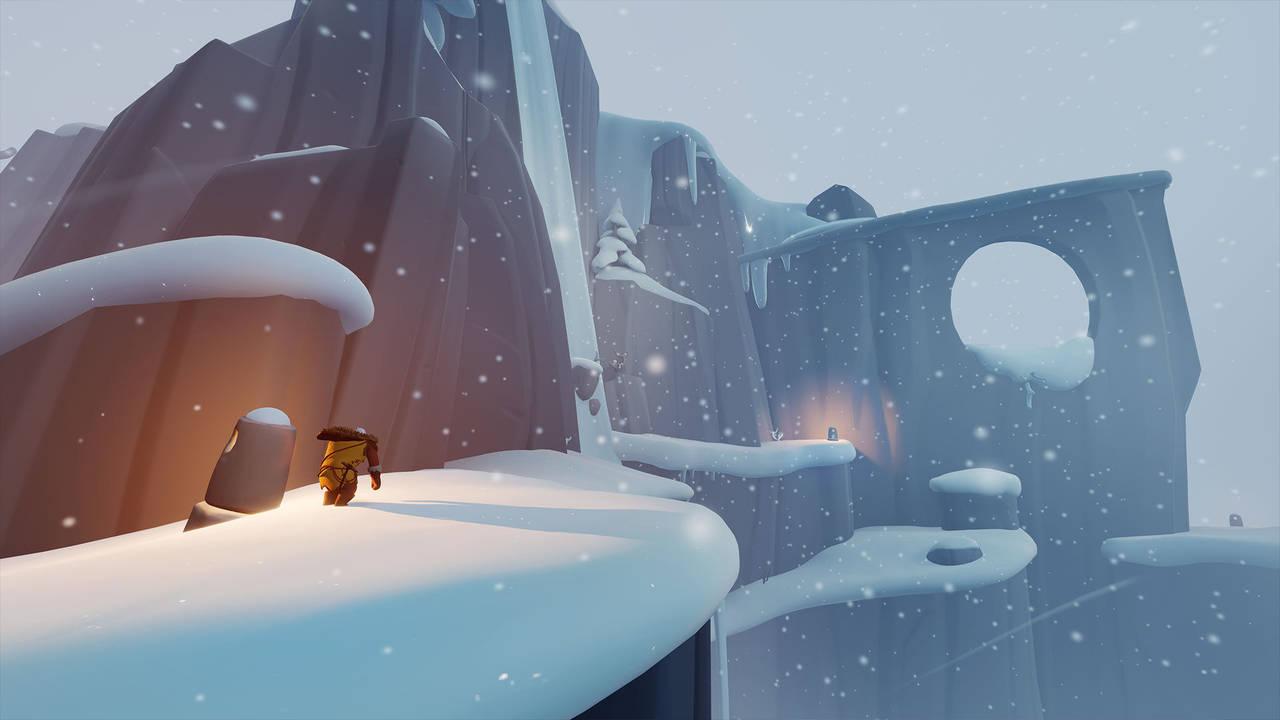Arise: A Simple Story is a breathtaking trip to the afterlife with a time travelling twist
Earnest, easygoing, and utterly gorgeous, Arise: A Simple Story has all the makings of a cosy Christmas treat

The touchstones for Arise: A Simple Story are hardly subtle. The story opens in unexpectedly sombre fashion at a funeral pyre (Brothers: A Tale of Two Sons), before our main protagonist awakes in limbo (... Limbo), only to be immediately drawn to a faraway mountain in the background, pulsating with a mysterious glow at its summit (Journey). Make no mistake; Arise is a game for the story-driven indie adventure crowd, but nevertheless brings its own ideas to a subgenre that continues to be fertile ground for inspired, experimental storytelling.
Arise's developer, Piccolo Studio, was founded by Alexis Corominas, Jordi Ministral, and Orlol Pujadó in the heart of Barcelona's business district. The trio had spent decades working together in digital marketing and advertising, but were spurred by a shared yearn to return to more creative shores. In person, all three speak with a heartfelt passion about their love of making games, so it's unsurprising that Arise is equally earnest as a playing experience, too.
We navigate the various memories of our unnamed protagonist's life as it flashes before his eyes in slow motion, with each new level representing a different recollection from his past, and the accompanying emotions attached to each one of them. The first level we played, for example, is titled Joy, and captures the nostalgic frivolities of childhood through skewed perspectives, simple platforming, and a colourful woodland backdrop.
A not so simple journey

"The kind of experience I want to be enjoying sat by the fire as a cold spell ushers evening into night outside."
To borrow a marketing phrase that Piccolo's founders will likely be more than familiar with, however, Arise's 'central USP' has nothing to do with its admittedly engaging story. Instead, the game looks to carve out its own space in the genre with a time manipulation mechanic that immediately distinguishes it from its many muses. Each level takes place within a single time-lapse, and you'll have the opportunity to scroll back and forth at will through this period using the right analogue stick to influence the game world, or freezing events entirely with the press of the trigger.
Joy, for example, takes place over a single day, from morning till night, and my playthrough allowed me to fast forward or rewind that timeline to solve light platforming puzzles, such as determining the angle of sunflower faces in a field to safely hop between each one. Alternatively, in a second and much darker mission, the time-lapse was limited to a matter of seconds, in which an earthquake quickly turns a giant trench into a crumbling death trap. Using the right trigger let me turn falling debris into makeshift elevators, transporting the character through the trench via tumbling boulders reversed into ascending motion.
It's a smartly integrated gameplay feature that imbues Arise with a legitimate sense of challenge, and one that's allowed Piccolo to prove its talents in the disciplines of level design, platforming, and narrative contextualisation. If you wish, you can even use this feature to play Arise with a friend as a local co-op game, with one player tasked with controlling the protagonist and the other charged with manipulating the time loop. It's nothing as demanding as, say, a round of Overcooked when it comes to challenging your collaborative faculties, but I can easily see this optional mode as being the perfect entry point for introducing a friend or loved one to the lesser-known world of shorter, more therapeutic interactive adventures.

It should go without saying if you've seen Arise's reveal trailer, which had the tough job of being The Last of Us 2's warm up act for PlayStation's State of Play in September, but Piccolo's first project is a real feast for the eyes. Built with the Unreal Engine and drawn from a wide pool of influences, from Nordic folklore to Studio Ghibli, Arise's art style is a pastiche of warm colours and plush textures. The resulting ambience is as pleasing to the senses as its soulful soundtrack, composed by Ninja Theory's David García and packaged as a free digital download with any pre-orders of the game.
Weekly digests, tales from the communities you love, and more
I'm not sure whether it was intentional on Piccolo's part, but Arise feels like the perfect game for Christmas, and not just because the main character is the spitting image of the big man in red himself. The game's resonant themes, easygoing gameplay, and soothing audio-visual output make up exactly the kind of experience I want to be enjoying sat by the fire, as a cold spell ushers evening into night outside.
From what I've played so far, Arise also looks to mark a strong, confident start for Piccolo Studio, which is already busy at work on its next major project in line with its philosophy of making "handcrafted experiences". Until it's ready to reveal more about that, however, we'll be able to play Arise for ourselves on December 3, when the game launches on PC, PS4, and Xbox One.
Check out the biggest new games of 2019 still on the way, or watch the latest episode of Dialogue Options below.
I'm GamesRadar's Features Writer, which makes me responsible for gracing the internet with as many of my words as possible, including reviews, previews, interviews, and more. Lucky internet!



